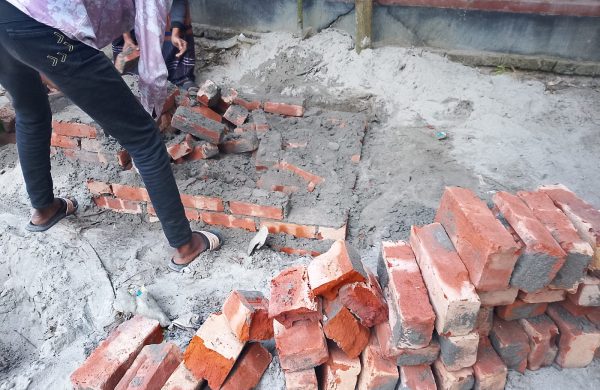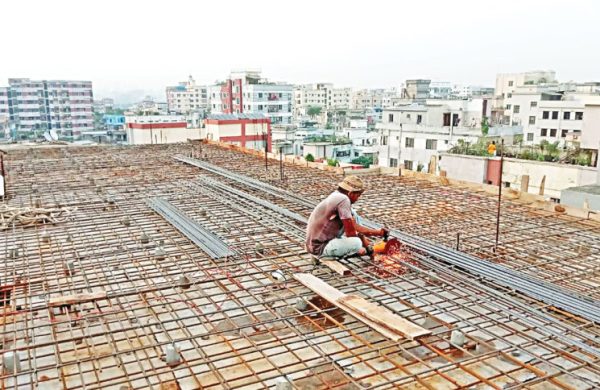Judges have to submit wealth statement before retirement
- Update Time : Tuesday, February 11, 2025

Staff Correspondent:
A Supreme Judicial Council will collect wealth statements of judges and their dependent family members every three years and six months before retirement and publish the reports following review.
The council will also monitor and review the judges’ efficiency, court management, case management and demeanors with lawyers and court related people. These proposals have been laid out in the final report of the judiciary reform commission.
The commission also recommended carrying out necessary reforms and formulating appropriate procedures in order to ensure discipline and accountability of Supreme Court judges.
The cabinet division on Saturday published reports of six reform commissions including that of the judiciary on its website. Eight-member judiciary reform commission headed by retired Supreme Court judge Shah Abu Naim Mominur Rahman was formed on 3 October. The 352-page report has put forward various recommendations and proposals on judicial reform in 31 chapters.
The reform commission’s report discusses the reform of the Supreme Judicial Council in the chapter ‘Appointment and Discipline of Supreme Court Judges’. It states that the council will operate a permanent complaints procedure where litigants, lawyers, court support staff and other concerned persons can report any specific complaints against judges. The council will examine the complaints received after a specified period of time and conduct a full investigation if necessary. The matter should be included in the council’s rules of procedure. If the investigation proves that a former judge has violated the code of conduct, he will be warned as a disciplinary measure and, where appropriate, be barred from using the title of ‘judge’.
PROBABLE REASONS OF CORRUPTION AND IRREGULARITIES IN COURTS
The chapter titled ‘Prevention of corruption in judiciary’ states that there are over 2300 judges in lower and higher courts in the country. Settling 4.3 million litigations by such a small number of judges create a case backlog.
The report identified some factors behind corruption and irregularities in the courts. These include lack of accountability by judges, lawyers, staffers, assistants of lawyers, police or investigation; absence of any information center in the court premises; not utilising the maximum daily working hours of the concerned stakeholders; and lack of complaint resolve system.
ESTABLISHMENT OF COMPLAINT BOX
The reform commission stated that the wealth statements of the judges of the Supreme Court and subordinate courts should be sent to the Supreme Court every three years and published on the website. The commission recommends that a complaint box should be set up in the Supreme Court for the complaints of corruption against the judges of the Supreme Court to reach the Supreme Judicial Council in writing and a specific email address should be made public for the public for submitting complaints through email.
The commission has recommended the formation of a three-member preliminary investigation committee comprising Supreme Court judges to investigate the allegations of corruption against judges working in subordinate courts. The investigation committee will examine the complaints filed every three months and hear the statements of the accused. The investigation committee will decide whether the allegations are true or not and will direct the filing of a departmental case against the accused judge or take other measures.
The commission also recommended the introduction of a grievance remedy system to prevent corruption in the judiciary. In addition, the report of the reform commission has recommended the formation of an investigation committee in every district of the country through the Bar Council to receive complaints and resolve them to prevent corruption among lawyers.
‘COURT EMPLOYEES DEMAND BRIBES’
The chapter ‘Prevention of corruption in the judiciary’ mentions the results of an online survey conducted by the reform commission on corruption in the judiciary. This survey was conducted on citizens, judges and lawyers. A total of 84.90 per cent of the respondents said that court employees demand bribes. The question in the survey was – ‘What is your perception of court employees?’ 11,225 people gave their opinions.
To the same question, 91.70 per cent of lawyers said that court employees demand bribes. A total of 228 lawyers gave their opinions in the survey.
On a question about what is the perception of court support staff, 188 judges gave their opinions. 124 judges, which is 66 per cent of the respondents, gave their opinions that court employees demand bribes.
Lawyer Tanim Hossain Shawon, a member of the Judicial Reform Commission, told Prothom Alo that the survey results have revealed the public’s desire to ensure accountability in the judiciary. It is imperative to ensure transparency at the highest levels of the judiciary so that it can be applied to others involved in the judiciary as well.














